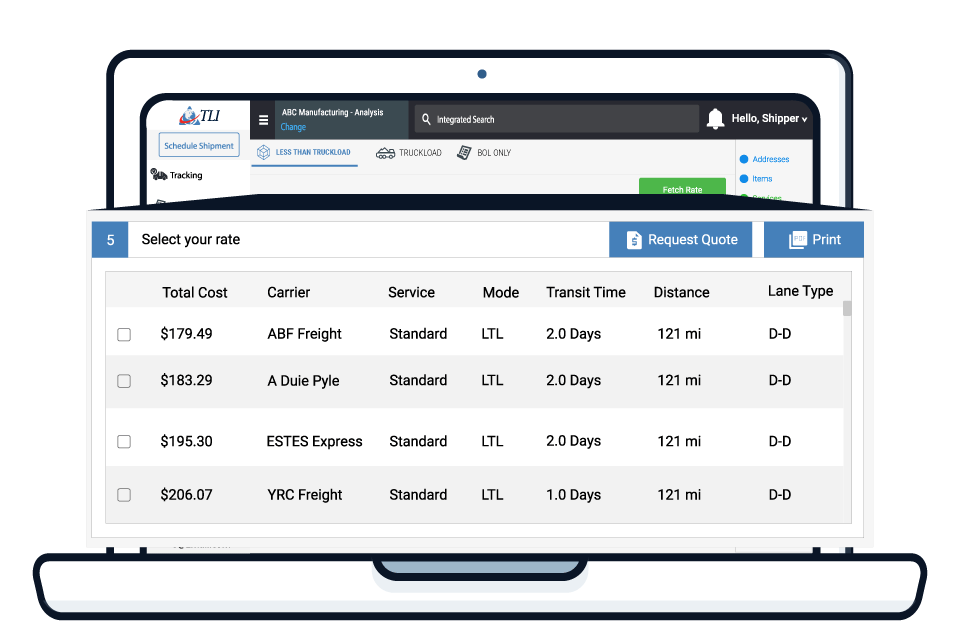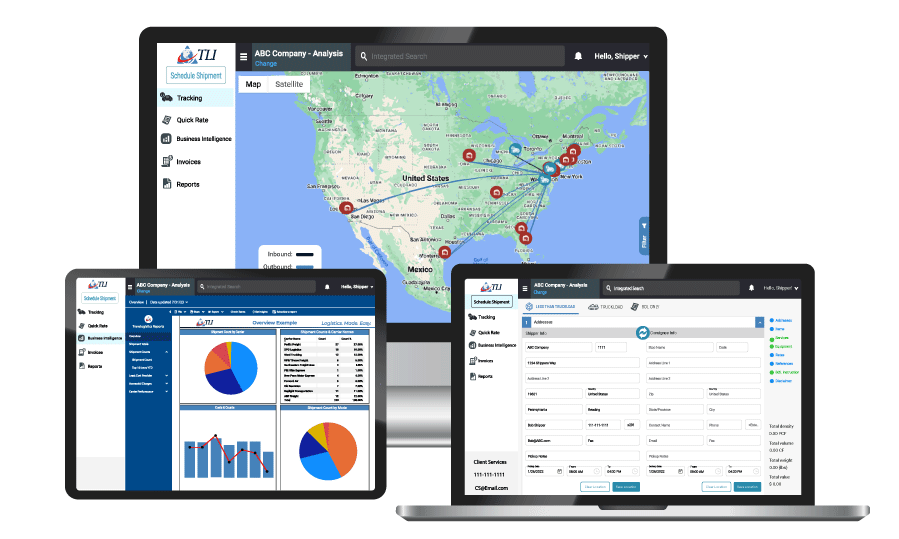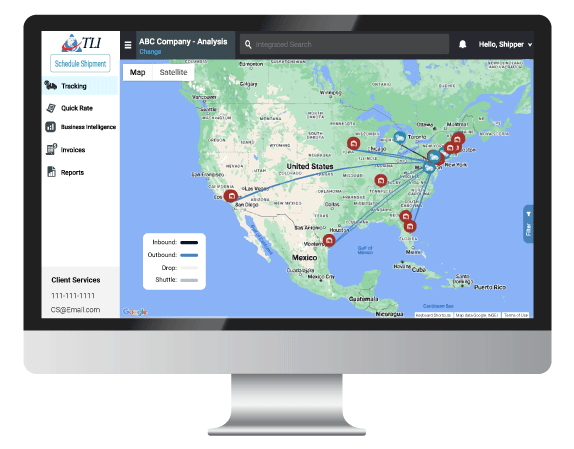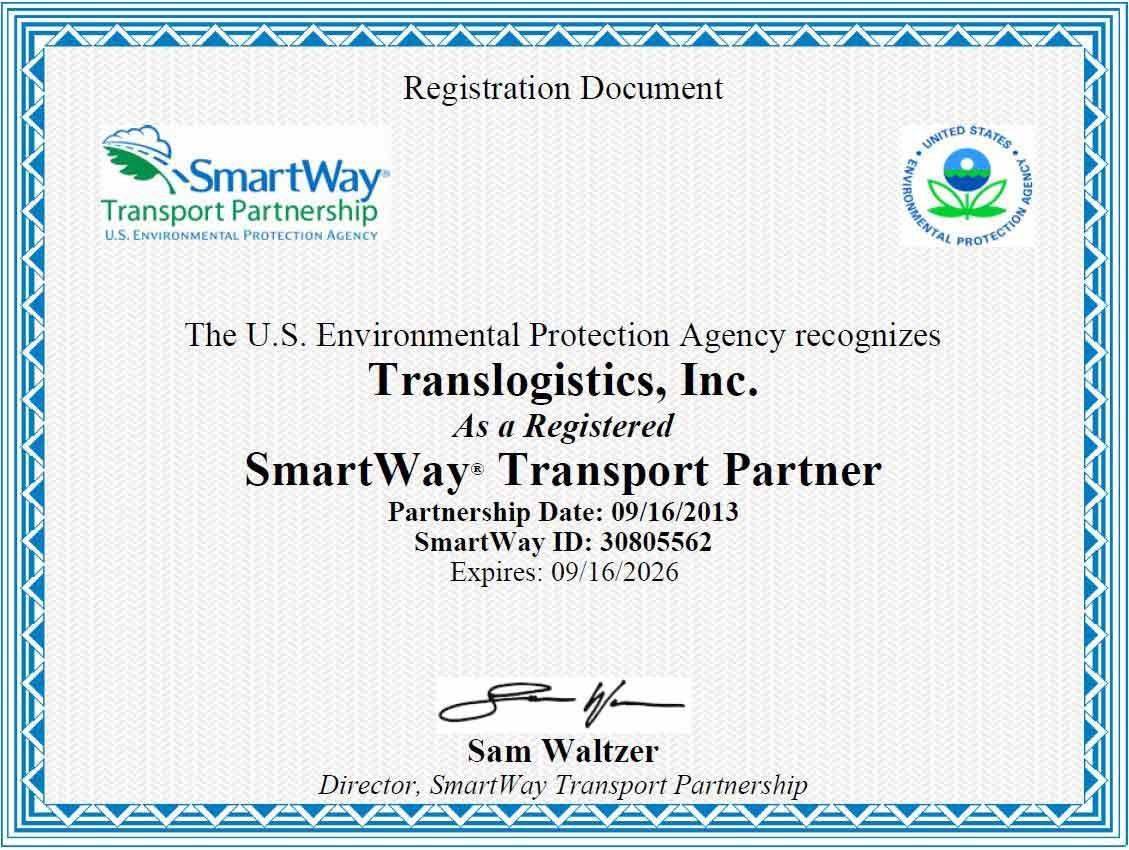What is a Transportation Management System?
Transportation Management System (TMS)
What is a Transportation Management System?
A Transportation Management System (TMS) is a software platform that helps shippers efficiently manage and optimize their transportation and logistics operations. It provides a comprehensive set of supply chain tools, such as tracking freight, cargo claim submission, freight invoice payment and supply chain analytics features to plan, execute, and track the movement of goods and raw material from one shipping location to another.

A TMS typically includes the following key functionalities:
1. Shipment Planning: TMS logistics software enables users to plan and optimize the movement of goods by selecting the appropriate carriers, routes, and modes of transportation. It considers factors such as cost, transit time, carrier availability, and customer requirements.
2. Execution and Visibility: A TMS facilitates the execution of transportation plans by automating processes such as load tendering, carrier selection, POD archiving, and documentation generation. It also provides real-time visibility into the status and location of shipments, allowing users to track and monitor them throughout the transportation lifecycle.
3. Freight Rate Management: TMS software helps manage freight rates by maintaining a centralized database of carrier contracts and rates. It streamlines the process of rate negotiation, selection, and audit, enabling organizations to optimize transportation costs and improve efficiency.
4. Carrier Management: It includes features for managing carrier relationships, such as onboarding new carriers, maintaining carrier profiles, assessing carrier performance, and managing carrier contracts and compliance.
5. Route Optimization: TMS solutions often include route planning and optimization capabilities, which help determine the most efficient routes based on various factors like distance, traffic, time windows, and delivery constraints. This optimizes delivery schedules and reduces transportation costs.
6. Analytics and Reporting: TMS systems provide comprehensive reporting and analytics tools to analyze transportation data, track key performance indicators (KPIs), identify bottlenecks, and make data-driven decisions to improve operational efficiency and customer service.
Shippers use a Transportation Management System (TMS) for several reasons, as it offers numerous benefits and helps them overcome various challenges in their transportation operations. Here are some key reasons why shippers use a TMS:

Key reasons shippers use a TMS:
1. Improved Efficiency: A TMS automates manual processes and streamlines transportation operations. It helps shippers efficiently plan and execute shipments, optimize routes, consolidate orders, and select the most cost-effective carriers. By reducing manual effort and human errors, a TMS enhances operational efficiency and saves time.
2. Cost Reduction: Transportation costs can be a significant expense for shippers. A TMS provides tools and features to optimize carrier selection, route planning, and load consolidation, enabling shippers to reduce transportation expenses. By leveraging rate management capabilities, shippers can negotiate favorable rates, analyze carrier performance, and identify cost-saving opportunities.
3. Enhanced Visibility and Tracking: A TMS offers shipment tracking visibility into the movement of goods throughout the transportation lifecycle. Shippers can track shipments, monitor delivery status, and receive alerts or notifications in case of delays or disruptions. This visibility helps shippers proactively address issues, improve customer service, and make informed decisions based on accurate and up-to-date information.
4. Streamlined Carrier Management: Managing relationships with multiple carriers can be complex and time-consuming. A TMS provides a centralized platform for shippers to manage carrier contracts, rates, and performance. It simplifies the process of carrier onboarding, automates rate negotiation, and enables better collaboration with carriers. This streamlines carrier management and improves communication and coordination.
5. Compliance and Documentation: Transportation involves various regulatory and compliance requirements, including documentation, permits, and customs regulations. A TMS helps shippers maintain accurate and complete documentation, ensure compliance with regulatory standards, and generate necessary shipping documents efficiently. This reduces the risk of errors, delays, and penalties associated with non-compliance.
6. Data Analysis and Reporting: A TMS collects and stores transportation data, providing shippers with valuable insights into their operations. Shippers can analyze key performance indicators (KPIs), identify trends, evaluate carrier performance, and make data-driven decisions to optimize their transportation strategies. Reporting and analytics capabilities in a TMS enable shippers to generate customized reports, track performance metrics, and identify areas for improvement.
By integrating various aspects of transportation management into a single platform, a TMS enables businesses to streamline their supply chain operations, reduce costs, enhance visibility, improve customer service, and achieve greater control and efficiency in managing their transportation activities. Overall, shippers use a TMS to streamline their transportation processes, reduce costs, and enhance visibility. If you are interested in a TMS logistics login, please
contact TLI today.
TLI Insights
Get the latest logistics insights and tips from TLI's award-winning team. Stay ahead in transportation planning.
Questions? Email us at marketing@shiptli.com




